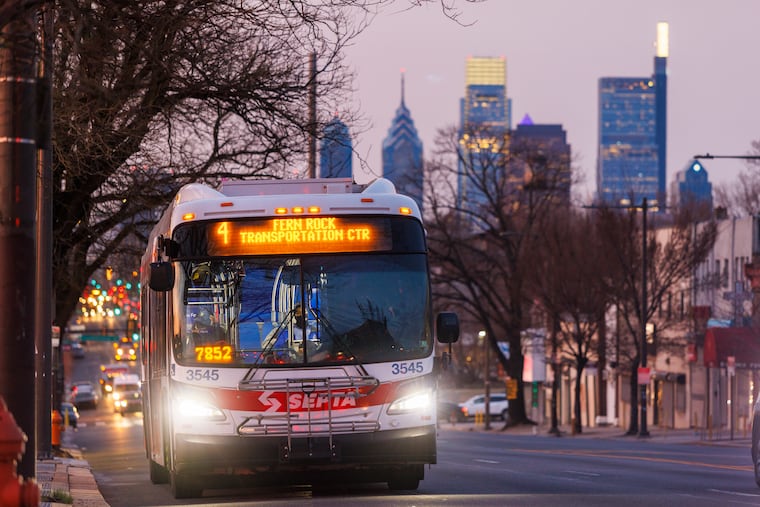SEPTA should privatize its bus routes to save money, Pa. Republican leader proposes
Denver tried it, but the suggestion is still provocative for Pennsylvania.

SEPTA would be required to privatize its bus service “at a minimum” under legislation proposed by Pennsylvania House Republican Leader Jesse Topper.
It’s the latest entry in the roiling Harrisburg policy debate over whether or how to increase state support for public transportation systems as SEPTA confronts its worst financial crisis in more than a decade.
» READ MORE: See how your commute could be impacted by SEPTA's proposed cuts
Topper, who represents Bedford and Fulton Counties, has circulated a memo to colleagues seeking cosponsors but has not yet filed the text of a bill.
“What’s clear is that doing the same thing over and over again is not going to fix SEPTA’s problems, and other currently proposed options only serve to patch over the problems of a system chronically in crisis,” Topper said in a statement.
He wants SEPTA to enter into a public-private partnership to operate its 125 bus routes, saying a contractor would save money.
SEPTA faces a $213 million structural deficit and says it must make drastic cuts starting this fall without more state dollars.
The transit agency brushed aside the proposal while thanking Topper for acknowledging its progress.
“By almost every metric … SEPTA is one of the most efficient transit agencies in the country,” spokesperson Andrew Busch said in a statement, citing 2023 numbers from the National Transit Database.
Partial privatization of SEPTA is a provocative suggestion, and it’s notable that the top leader of the GOP House caucus is sponsoring it.
Still, it could face a tough path to passage in the House, where majority Democrats control committees and the floor schedule.
Denver tried it
For many years, American transit was provided by private companies but most withdrew from what had become an unprofitable business or went bankrupt in the 1960s and 1970s. SEPTA opened in 1964, for example, inheriting the infrastructure and transit vehicles from six failing private providers in the Philadelphia region.
» READ MORE: SEPTA is vital to the livelihood of the entire region. So why is it so hard to fund?
Some public transit systems hire private contractors to operate parts of their bus networks. Denver’s RTD agency — cited by Topper as a success story — currently uses contractors on about 45% of routes. By most accounts that has saved costs, though riders have complained about service reliability and frequency.
The Colorado legislature mandated in 1989 that the transit agency use contractors to operate 20% of bus routes, then gradually increased the requirement. Colorado’s mandate was repealed in 2007, though RTD has continued using private operators.
All of SEPTA’s paratransit and shared-ride services are operated by private contractors.
Leveraging assets
“While SEPTA has done an admirable job in taking responsibility for its chronic budget deficits by raising fares and finding efficiencies in its operations, it is clear this is a problem government cannot solve without going back to taxpayers for more money or finding new sources of revenue,” Topper said.
SEPTA “leverages its assets” to increase non-rider revenue, Busch said. In the last 20 years, it has increased income from $21 million to $48 million from leasing and advertising deals.
SEPTA also has started an initiative to generate revenue from transit-oriented development, recently reaching a deal with Alterra Property Group for a 300-unit apartment building on agency land in Conshohocken.